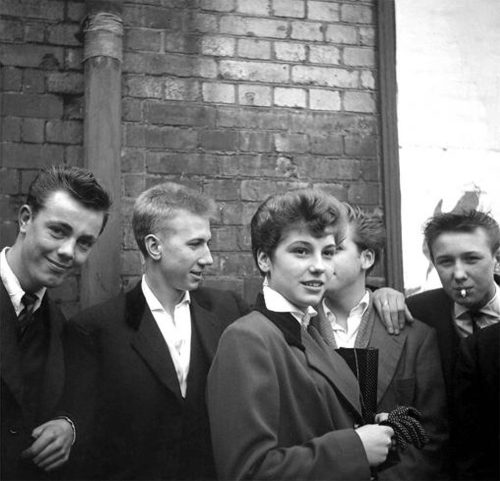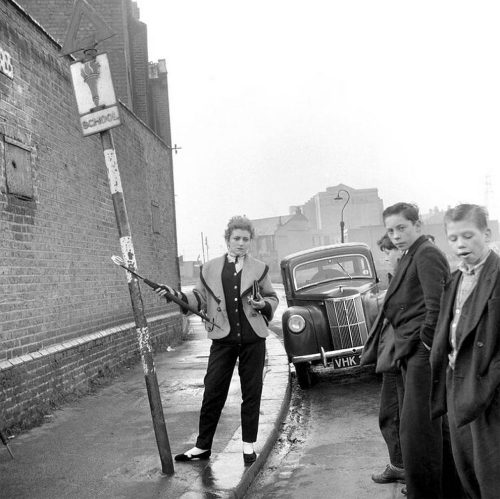The Hippocratic Oath Is One Of The Most Famous Pieces Of Medical Writing, And It Includes Some Of The


The Hippocratic Oath is one of the most famous pieces of medical writing, and it includes some of the basic ethical guidelines for medical practitioners. It is also constantly evolving. The images above come from a version of the oath that we found in the 1634 edition of Peter Lowe’s surgical text. If you compare it to this example of a modern version, you’ll notice some similarities and some differences. Both of them emphasize respecting the work of prior physicians and protecting the patient’s privacy. On the other hand, the modern oath doesn’t begin with an invocation to the gods, and it makes no mention of refusing to assist in abortions or any type of treatment that involves cutting. These changes illustrate how the practice of medicine, and what we expect of medical practitioners, changes over time.
New students at the Washington University School of Medicine are given the chance to devise their own student oath that is similar to the Hippocratic Oath. Take a look at the 2016 class oath here.
More Posts from Philosophical-amoeba and Others










Le festival Sōma-shi 相馬市 - préfecture de Fukushima-ken 福島県.
La région de Sōma est réputée pour ses chevaux. Tous les ans, du 22 au 25 juillet, s'y déroule le Sōma nomaoi 相馬野馬追, littéralement : “chasse aux chevaux sauvages de Sōma” autour des sanctuaires Ōta jinja 太田神社 et Odaka jinja 小高神社 à Minamisōma-shi 南相馬市, et du sanctuaire Nakamura jinja 中村神社 à Sōma. Durant 3 jours, les anciens cavaliers samouraïs sont mis à l’honneur lors de différentes démonstrations, parades de samouraïs, courses de chevaux, reconstitutions de batailles et processions.







Fuji-Ya Restaurant, Second to None
In 1968, Reiko Weston opened her new Fuji-Ya restaurant built atop the limestone foundation of a 19th-century flour mill overlooking the Mississippi River and the Stone Arch Bridge. The original Fuji-Ya restaurant operated near 8th St. and LaSalle beginning almost a decade earlier, in 1959, and served fine Japanese food including Charcoal-Broiled Teri-Yaki dinners, seafood dishes, soups, rice plates, and more. Fuji-Ya translates to “second to none” and the new restaurant offered a dining experience like no other in the Twin Cities.
Weston’s restaurant business expanded over the years with Taiga, a Chinese Szechwan restaurant in St. Anthony Main, and The Fuji International in Cedar-Riverside neighborhood, which featured Korean, Chinese, and East Indian food in addition to Japanese food. Her restaurants received numerous awards and Weston herself was named Minnesota Small Business Person of the Year in 1979.
After Reiko Weston passed away in 1988, her daughter Carol stepped in to manage. But in 1990, the City of Minneapolis bought out the historic restaurant in order to make way for the newly designed parkway. About a decade later, Fuji Ya was brought to life again in Uptown in the trendy Lyn-Lake area, where it remains today.
Recently, Fuji-Ya has gained renewed attention as the Park Board makes plans for a $12 million riverfront refresh. Plans include the teardown of the old Fuji-Ya building, expansion of green space, improved pedestrian crossings, and the addition of a new riverfront restaurant. It was announced last week that Sioux Chef owners Sean Sherman and Dana Thompson will open Owamni: An Indigenous Kitchen on the site.
Menu from the original Fuji-Ya restaurant at 814 LaSalle Ave. from the Minneapolis History Collection Menu Collection. Photos from the Star Tribune Photograph Collection at the James K. Hosmer Special Collections, Hennepin County Library.
Where does the word ‘meme’ come from?

The word meme was originally coined in the 1970s by sociobiologist, Richard Dawkins, from the ancient Greek for imitation.

He used it to describe how ideas and symbols propagate through a culture like genes through a population.

With the advent of the Internet, the process became directly observable in how jokes and images were popularized at lightning speed and soon the word came to refer to a certain kind of image.

So ‘meme’ not only describes how words become part of language, the word is a meme itself. As it turns out, there’s a word for words that describe themselves: ‘autological’.

Spread the word! ;)
From the TED-Ed Lesson Where do new words come from? - Marcel Danesi
Animation by TOGETHER
The Fibonacci sequence can help you quickly convert between miles and kilometers
The Fibonacci sequence is a series of numbers where every new number is the sum of the two previous ones in the series.
1, 1, 2, 3, 5, 8, 13, 21, etc. The next number would be 13 + 21 = 34.
Here’s the thing: 5 mi = 8 km. 8 mi = 13 km. 13 mi = 21 km, and so on.
Edit: You can also do this with multiples of these numbers (e.g. 5*10 = 8*10, 50 mi = 80 km). If you’ve got an odd number that doesn’t fit in the sequence, you can also just round to the nearest Fibonacci number and compensate for this in the answer. E.g. 70 mi ≈ 80 mi. 80 mi = 130 km. Subtract a small value like 15 km to compensate for the rounding, and the end result is 115 km.
This works because the Fibonacci sequence increases following the golden ratio (1:1.618). The ratio between miles and km is 1:1.609, or very, very close to the golden ratio. Hence, the Fibonacci sequence provides very good approximations when converting between km and miles.

How hard-wired are human beings for polygamy?


It’s easy: Form a triangle, then a hexagon, then a bicycle wheel
This is the general mechanism on how a spider spins its web (talk about engineering, right?). When an insect gets caught in its web, the vibrations caused by the insect is felt by the spider which then rushes to engulf its prey.
Now here is the trippy part ; This is the effect of drugs on the pattern of the web.


Hope you are having a great week. Have a good one!
* Spider spinning a web (video) (if you find a better full video let us know)
** Spiders on drugs - NASA article ; Video

Beautiful Blaschka glass model of a Glaucus sea slug.
These amazing animals can give a painful sting if handled. This is because they feed on colonial cnidarians such as Portuguese man o’ war and store the venomous nematocysts of their prey for self-protection.
-
 philosophical-amoeba reblogged this · 7 years ago
philosophical-amoeba reblogged this · 7 years ago -
 tofindingsincerity liked this · 8 years ago
tofindingsincerity liked this · 8 years ago -
 liv-blogs-blog1 liked this · 8 years ago
liv-blogs-blog1 liked this · 8 years ago -
 gzornetta liked this · 8 years ago
gzornetta liked this · 8 years ago -
 forgetful-amoeba liked this · 8 years ago
forgetful-amoeba liked this · 8 years ago -
 monicastacheski reblogged this · 8 years ago
monicastacheski reblogged this · 8 years ago -
 nientte1334 liked this · 8 years ago
nientte1334 liked this · 8 years ago -
 youllbehappyandwholesomeagain liked this · 8 years ago
youllbehappyandwholesomeagain liked this · 8 years ago -
 providencepubliclibrary liked this · 8 years ago
providencepubliclibrary liked this · 8 years ago -
 tinyverawang liked this · 8 years ago
tinyverawang liked this · 8 years ago -
 1dot54eva liked this · 8 years ago
1dot54eva liked this · 8 years ago -
 mp938368 liked this · 8 years ago
mp938368 liked this · 8 years ago -
 uwmspeccoll liked this · 8 years ago
uwmspeccoll liked this · 8 years ago -
 memento-nobis liked this · 8 years ago
memento-nobis liked this · 8 years ago -
 uicspecialcollections liked this · 8 years ago
uicspecialcollections liked this · 8 years ago -
 askthecanadiandoc liked this · 8 years ago
askthecanadiandoc liked this · 8 years ago -
 sunnysmiles2 reblogged this · 8 years ago
sunnysmiles2 reblogged this · 8 years ago -
 sunnysmiles2 liked this · 8 years ago
sunnysmiles2 liked this · 8 years ago -
 beckerrarebooks reblogged this · 8 years ago
beckerrarebooks reblogged this · 8 years ago
A reblog of nerdy and quirky stuff that pique my interest.
291 posts
















